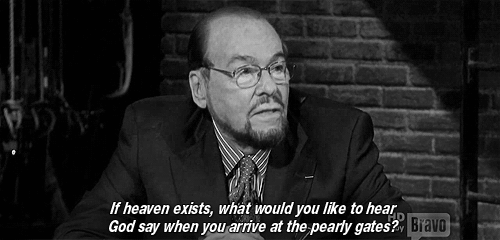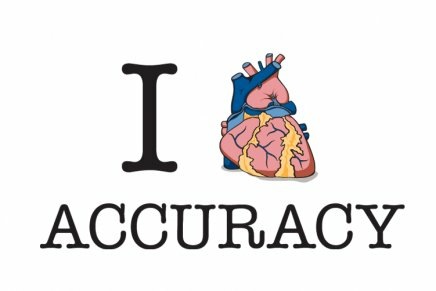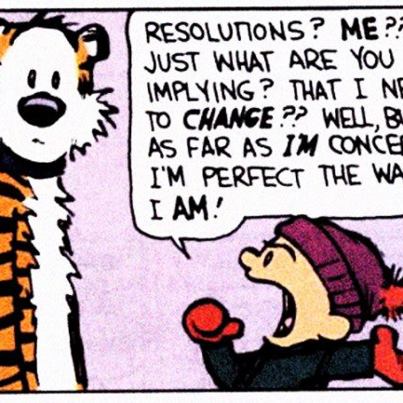Introduction from May 2014
This past week at Frazer UMC, where I work here in Montgoemry, Levi Garnder, our minister of outreach, brought a great message from the text of John 5. This year we’re going verse-by-verse through the book of John and this past week we talked about Jesus healing the man by the pool. Here’s some of the Scripture from John 5:
After this there was a festival of the Jews, and Jesus went up to Jerusalem.
Now in Jerusalem by the Sheep Gate there is a pool, called in Hebrew Beth-zatha, which has five porticoes. In these lay many invalids—blind, lame, and paralyzed. One man was there who had been ill for thirty-eight years. When Jesus saw him lying there and knew that he had been there a long time, he said to him, “Do you want to be made well?” The sick man answered him, “Sir, I have no one to put me into the pool when the water is stirred up; and while I am making my way, someone else steps down ahead of me.” Jesus said to him, “Stand up, take your mat and walk.” At once the man was made well, and he took up his mat and began to walk.
Now that day was a sabbath. So the Jews said to the man who had been cured, “It is the sabbath; it is not lawful for you to carry your mat.” But he answered them, “The man who made me well said to me, ‘Take up your mat and walk.’” They asked him, “Who is the man who said to you, ‘Take it up and walk’?” Now the man who had been healed did not know who it was, for Jesus had disappeared in the crowd that was there. Later Jesus found him in the temple and said to him, “See, you have been made well! Do not sin any more, so that nothing worse happens to you.” The man went away and told the Jews that it was Jesus who had made him well.
John 5:1-15
This scripture is so poignant to me because of the seemingly silly question Jesus asks in verse six: “Do you want to be made well?” You’d think that would be a no brainer, that anyone would see this man and know that just by looking at him that he would desire nothing more than to be made well. Jesus knew enough to know that it wasn’t the case. I think the detail of that question and the answer are in scripture intentionally to teach us about being victims of our circumstances, because even more interesting is the man’s answer. He doesn’t say “yes. of course. duh. what kind of question is that?” He makes an excuse as to why he can’t be made well. He says “I have no one to put me into the pool when the water is stirred up and while I’m making my way someone else steps down ahead of me.” In this answer is his honest answer: “what I really want is for you to feel bad for me.” Because this man had a hard life. He had been sitting by this pool begging for 38 years. It’s quite likely that he survived on hand outs from the others who came by to step into the pool. It was likely that the people walking by felt bad for him and he realized that if he actually were to be healed that as wonderful as it might be, then he might have to do real work. So did he want to be healed? Deep down, of course. But the false-self that he had created depended upon his sickness to maintain his way of life.
 If we’re honest, we like to use their painful history as a tool, or worse, a weapon. We lord it over people or try to use it to further our careers and social standing. In reality this kind of use of our pain is almost always toxic and usually won’t create any sustaining foundations on which these structures can last. This is why many popular musicians have such tragic lives. They often start off with the usual issues we all have: issues with their family, faith, & finances. Once they’ve worked out their finances they have a choice to move onto their family and faith or they can start inventing new problems. They don’t want to be made well.
If we’re honest, we like to use their painful history as a tool, or worse, a weapon. We lord it over people or try to use it to further our careers and social standing. In reality this kind of use of our pain is almost always toxic and usually won’t create any sustaining foundations on which these structures can last. This is why many popular musicians have such tragic lives. They often start off with the usual issues we all have: issues with their family, faith, & finances. Once they’ve worked out their finances they have a choice to move onto their family and faith or they can start inventing new problems. They don’t want to be made well.
One of my family’s favorite movies is film based on a book by the same name Cold Comfort Farm. It’s rich comedic satire of Jane Austin’s writings – and it cleverly lampoons many of the common plot devices she and other similar authors use. In the story a young woman goes to live with her strange relatives. Her great aunt is up in her room all the time and never leaves. When asked she says “I saw something nasty in the woodshed.” And as comical as this might sound it’s become a reference that my whole family understands. If one of us refers to someone who “saw something nasty in the woodshed.” It means they’re hanging onto something unfortunate in their past. They don’t want to be made well.
Ken Roach and Jerrod Dorminey Captured it well in their original Blues Song “the Bethesda Blues.” Featured in this past week’s worship service.
https://www.youtube.com/watch?v=7zTF5LZyBYE
The rest of this post I wrote three years ago. It was one that got several comments on my old blog, including one asking me how someone can get out of the victim mentality. I was surprised at the question but also frustrated that I don’t have a good answer that would fit every situation. The best thing I can offer is this: If someone wants to get better, they can get better. That’s why I believe the man by the pool truly wanted to get better, even if he was playing the victim. But there are those who want to be victims their whole lives. I really believe that prayer is the only thing that can help someone who doesn’t want to be made well. Divine intervention then counseling either from a professional or a wise mentor. Some people just want to cling to their sickness and make excuses when they should cling to Christ and defy everyone’s expectations.
Original Post from June 2011
A great way to stay trapped Perhaps the greatest lesson that my father taught me about life from a early age is that a victim mentality gets you nowhere. Likely everyone that regularly reads my blog would agree with me, but recently I saw some posts on Facebook that reminded me that some people earnestly believe that it is perfectly acceptable for individuals to rest on the excuses generated out of whatever unfortunate circumstances their life has given them. To those people I’d like to say: that’s perfectly fine. From a secular point of view it is totally acceptable for you to use your past as an excuse for your current behavior, if you wish to stay trapped your whole life. That’s perfectly ok, no one will force you out of captivity. A person in a victim mentality is much like a person who has been beaten, bruised and forced into a cage. Later, whether days or years, the bruises heal and someone will come to them with the key to their escape. Most will not use the key, however. Why? Because once you’re free you no longer have the excuse, you have to take full responsibility for yourself. Most people would rather be able to lean on the excuse of what has been done to them; garnering sympathy and demanding that people be sensitive to what has happened to them.
Before I continue, I should specify that I do believe that there are many reasons for a person to be a victim that they truly cannot help. Mental Illness or chemical imbalances caused by genetics are among them. But just as those people must choose to submit to therapy and/or medication; those who have chosen to be defined by their most tragic and painful moments, they need to eventually lay it all down to be truly free.
I also should say that I do believe in being as sensitive to people as is reasonable in every situation. I can’t begin to imagine the tragedy through which some people have lived and I would never deny them grief, anger, or mourning; all three of which are holy emotions expressed by Jesus himself. However, there is a massive difference between feeling and expressing a holy emotion and allowing yourself to fall victim to your emotions. The difference is in this phrase: “Because ______ happened to me I must always react by ______” When you say that you are becoming victim whether in a small or large way. By contrast each time you say “Despite the fact that ______ happened to me, I will choose to ______” you are choosing to not be victimized.
The Bible tells me so
Please understand that I’m not so arrogant as to say that people shouldn’t be affected by the tragedies of life. I don’t pretend to understand all of the different causes of strife in the world or the pain that people have experienced, but I do know that from a scriptural worldview its impossible to say that a victim mentality is acceptable.
I think you ought to know, dear brothers, about the hard time that we went through in Asia. We were really crushed and overwhelmed, and feared we would never live through it. We felt we were doomed to die and saw how powerless we were to help ourselves; but that was good, for then we put everything into the hands of God, who alone could save us, for he can even raise the dead. And he did help us, and he saved us from a terrible death; yes, and we expect him to do it again and again. 2 Cor 1:8-10 Living Bible
Or, Perhaps more to the point. . .
Now I rejoice in my sufferings for your sake Col. 1:24a
There are many many more scriptures about rejoicing in suffering. So from a scriptural standpoint, we see Paul – beaten, tortured ‘doomed to die’ and what does he say? “That was good.” Wait, what? “Powerless to help ourselves” “that was good” “overwhelmed” “that was good.” “crushed” “that was good.” seriously. It’s only been in the last several years that I’ve come to realize this. Christians are blessed with the hope in Christ and the ability to say that our suffering only brings us closer to Him and by suffering for Him, we take part in the fellowship of His suffering. We go from “that was bad” to “that was hard” to “that was good.”
Is this some kind of sickness? Perhaps masochism? By no means! Looking back and saying something was ‘good’ is far different then deriving pleasure from it. Again, there is nothing wrong with anger and mourning. The only reason why Paul is able to look back at the bad times and call them good is because he realizes they brought him closer to Christ. He realizes that Christ’s resurrection power is at work in our lives, but to access that power we have to die. Think about that for a minute. Its easy for us to think of Christ’s death on the cross as the great tragedy of history and his resurrection as the restoration of that tragedy. Christ’s resurrection wouldn’t have been possible without His death. A Christian view of suffering is simply realizing that without death there can be no resurrection.
On the practical end of things…
Even if you’re not looking at this from a scriptural perspective, say you’re an agnostic or a secular humanist, then look at it from the purely practical end of things. If we decide that there are some things in life that a person cannot be expected to recover from, some wounds that cannot be healed; that’s fine, but do you really want to work with someone who’s single greatest aim in life is to make sure everyone is sensitive to their life’s tragedies? After a while there must be a reasonable expectation of growing from your past, and becoming responsible for your present. I don’t say ‘moving on’ because I think that insinuates that you must ignore your past, not at all, instead you grow from it and become stronger than ever.
Steven Covey, the writer of Seven Habits of Highly Effective People, talks about this in the first Habit. Which is “Be Proactive.” He simply states that a part of being proactive is taking responsibility for yourself and your behavior. He suggests that the main meaning of being responsible is being able to choose your response.
Most people who have a victim mentality get angry at the insinuation that they are somehow to blame for their attitude. They act as if that’s tantamount to being told that they are to blame for the tragedy in their life or their genetic make up. That’s a huge leap in logic. Between stimulus and response there is a narrow space where you can choose. You’re not Pavlov’s dog, forced to salivate by every bell that rings. You’re not a programmed machine, who’s brain will always produce the same reaction given the same set of circumstances.
I recently had the pleasure of hearing a lecture by Ben Carson. Dr. Carson is the preeminent pediatric neurosurgeon active today. He’s participated in several firsts in his field including the first separation of siamese twins that were conjoined at the head. This is featured in a movie called “Gifted Hands” starring Cuba Gooding Jr. as Dr. Carson. In 2008 Dr. Carson was awarded the presidential medal of freedom, the highest civilian honor in our nation. That’s impressive, but what’s more impressive is that Dr. Carson came from a low-income single parent household in Detroit. At a young age his parents divorced and his mother struggled to find employment as she couldn’t read – the only work she could maintain was that of a house keeper where Ben would later say “She observed that successful people spent a lot more time reading than they did watching television.” And she implemented a rule that her two sons would read two books a week from the library. You can read more about
Ben Carson’s upbringing on NPR’s website.
The reason why the victim mentality is so pervasive is because there is only one alternative: work. It takes work to overcome the setbacks, the emotional stresses, the tragedies of life. No one would’ve blamed Ben Carson for being a below average student, he had a number of things against him. But his mother chose to fight that and later he chose to fight that as well, working hard to get into med school and then working hard to become the best doctor he could be. That’s because they chose not to be victims of their circumstances. Most people can’t even admit that they’re choosing to be victimized because If you admit that you can do something about it and choose not to do something about it, it becomes your fault. I wouldn’t be writing about this if it weren’t a struggle for me also, but one thing I’ve realized is that once you are real with yourself about where you are choosing to be victimized then you can start to allow the solution permeate throughout your life.
Personally…
I’ve struggled with having a victim mentality about many different things. There are some ways in which I continue to deal with it. One small example is the fact that I’m not an athletic person and most of my growing up years I allowed myself to be victimized by that, but as I grew up, I began to fight the impulse to feel victimized and I stepped out of my comfort zone and tried new activities. Now I have a whole list of sports and activities that I really enjoy, even if I’m not the best at them. Stepping out in this manner has opened so many opportunities to me that I would have never had if I had rested on the laurels of victimization. I think the message paraphrase of the Bible phrases paul’s words in Philippians well:
I’m not saying that I have this all together, that I have it made. But I am well on my way, reaching out for Christ, who has so wondrously reached out for me. Friends, don’t get me wrong: By no means do I count myself an expert in all of this, but I’ve got my eye on the goal, where God is beckoning us onward—to Jesus. I’m off and running, and I’m not turning back. Phil 3:12-14
I think one of the mistakes we make when trying to overcome our victim mentality is the idea that we need to have it all figured out, that we need to somehow be totally fixed before we relinquish our victim status. In reality, we just have to admit that we don’t always know exactly what the path to healing is going to look like and we need to trust that it ends at the feet of Jesus. Whatever your excuse is for not living a full and healthy life, that’s not God’s will for you. I can tell you he wants you to take hold of you inheritance now. Yes you have eternal life in terms of length, but you also have abundant life in terms of height and depth, so stop making excuses and grab hold of the abundance that Christ has given you.


 If we’re honest, we like to use their painful history as a tool, or worse, a weapon. We lord it over people or try to use it to further our careers and social standing. In reality this kind of use of our pain is almost always toxic and usually won’t create any sustaining foundations on which these structures can last. This is why many popular musicians have such tragic lives. They often start off with the usual issues we all have: issues with their family, faith, & finances. Once they’ve worked out their finances they have a choice to move onto their family and faith or they can start inventing new problems. They don’t want to be made well.
If we’re honest, we like to use their painful history as a tool, or worse, a weapon. We lord it over people or try to use it to further our careers and social standing. In reality this kind of use of our pain is almost always toxic and usually won’t create any sustaining foundations on which these structures can last. This is why many popular musicians have such tragic lives. They often start off with the usual issues we all have: issues with their family, faith, & finances. Once they’ve worked out their finances they have a choice to move onto their family and faith or they can start inventing new problems. They don’t want to be made well.




